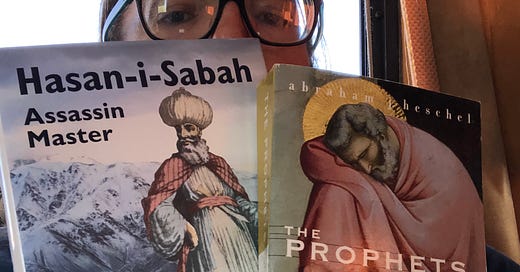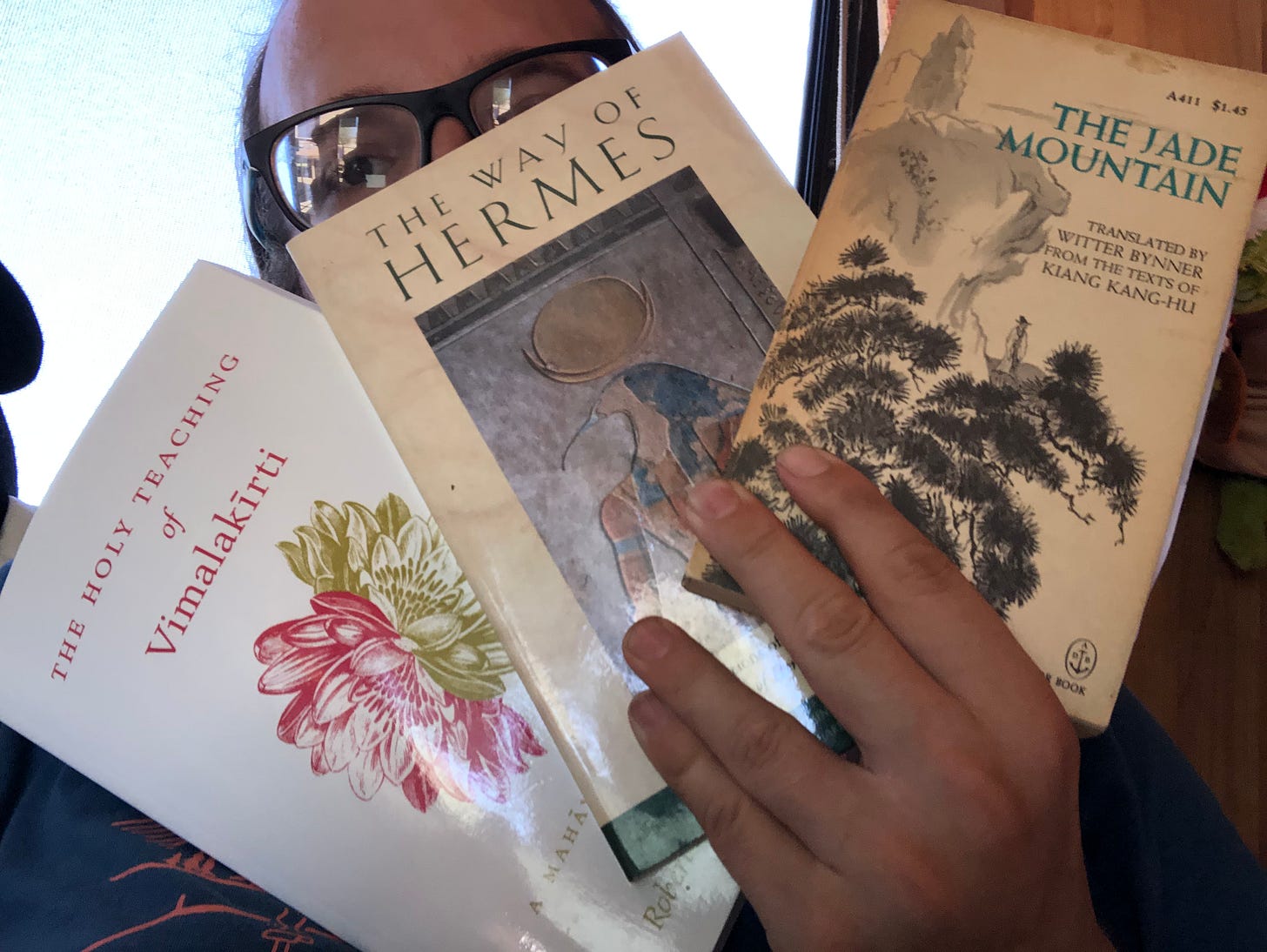Revealing My Second Ketamine-Inspired Prophetic Revelation
I Spent a Week Pondering This One Before Writing
Last week I tried to follow my doctor’s direction by not disclosing immediately the contents of the insights gained from my second round of ketamine infusion therapy, but I did hint at what all was involved:
After my first infusion of ketamine on Monday, I began to experience immediate relief from my PTSD symptoms. I was no longer feeling the hyper-arousal of my physical senses and the inflaming and intensifying of all my emotions. I could concentrate again. I even managed to finish reading my first book of the year, which I spotlighted for our Book of the Day feature:
However, on Tuesday, as I was still recovering from the previous day’s treatment, I felt a sense of confusion about what I should do next. Now that I could write, read, and concentrate enough again, what was I supposed to do? I have so many book projects, tasks to work on in relaunching the publishing company, and freelance writing/researching/editing gigs to nail down that I didn’t know where to begin or what was really most important.
So my “intention” for the second ketamine infusion - I’m supposed to choose a goal or target at the start of each one - this time was the mantra “clarity of direction.” The whole infusion was just one extended prayer of me asking God, “What do you want of me? I am your servant, what am I supposed to do next?”
And He told me. When I emerged from the ketamine experience after two hours - which felt like 20 minutes - and Dr. Ko asked me what insights I had gained I had something very specific that had come to me: I need to act as a bridge to help facilitate peacemaking between the Jewish and Muslim peoples. The God of Israel does not like when his children fight each other. He wants all of us to live in peace and not make war against one another.
I had already planned part of this as a component of God of the Desert Books - the God who inspired Judaism, Christianity, and Islam is a God of the Desert, and it’s important to me to take an Abraham Accords-inspired stance of trying to encourage greater creative collaboration between Jewish writers and Muslim writers.
But as I’ve unpacked this realization over the last week I’ve seen how much deeper it goes: this publication will not only seek to bring together Jews and Muslims, but as many conflicting faith traditions and cultural values as we can. We’re also going to seek to counter the phony conflict between religion and science.
What will be the primary tool in pursuing this peacemaking? The mystical traditions embedded in each faith. We’re going to talk about and read excerpts from each on different days:
Sundays for Christianity:
Saturdays for Judaism:
And since Fridays are Islam’s holy day I’ll be exploring Muslim mystical ideas on Friday podcasts. I’ll start with reading excerpts and commenting on Hasan-i-Sabah: Assassin Master, which is the final book by the late James Wasserman, who was a friend and spiritual mentor of mine who passed away in November 2020. I’ve been so hurt by James’ passing that I haven’t been able to bring myself to read his final book yet so now seems like a good time. Sabah lived from 1050 to 1124 and founded the Nizari Ismaili sect of Islam which today numbers 20 million adherents and is led by the Aga Khan.
As this series progresses I may decided to allocate other days of the week for Eastern, Native American, Pagan, and other mystical traditions. I may also continue to juxtapose these traditions with Western ones also. I’ll continue to explore the book of Chinese poetry, The Jade Mountain, sent to me by my friend Fred Tribuzzo. I’ve also got The Way of Hermes: New Translations of the Corpus Hermetic and The Holy Teaching of Vimalakirti, a Buddhist text recommended by another friend.
Anybody have any suggestions on other books I should read or practices I should explore? Your comments are deeply appreciated.








“suggestions on other books I should read”: Have you read The Ethics of the Fathers (Pirkei Avot)? It is a collection of aphorisms by the rabbis of the mishnaic period (Tanaim) and the first chapter of the first of the six orders of The Mishna (the earliest section of The Talmud). A companion volume to Pirkei Avot is The Fathers According to Rabbi Nathan, which relates narratives about the same rabbis and is a narrative commentary on Pirkei Avot.